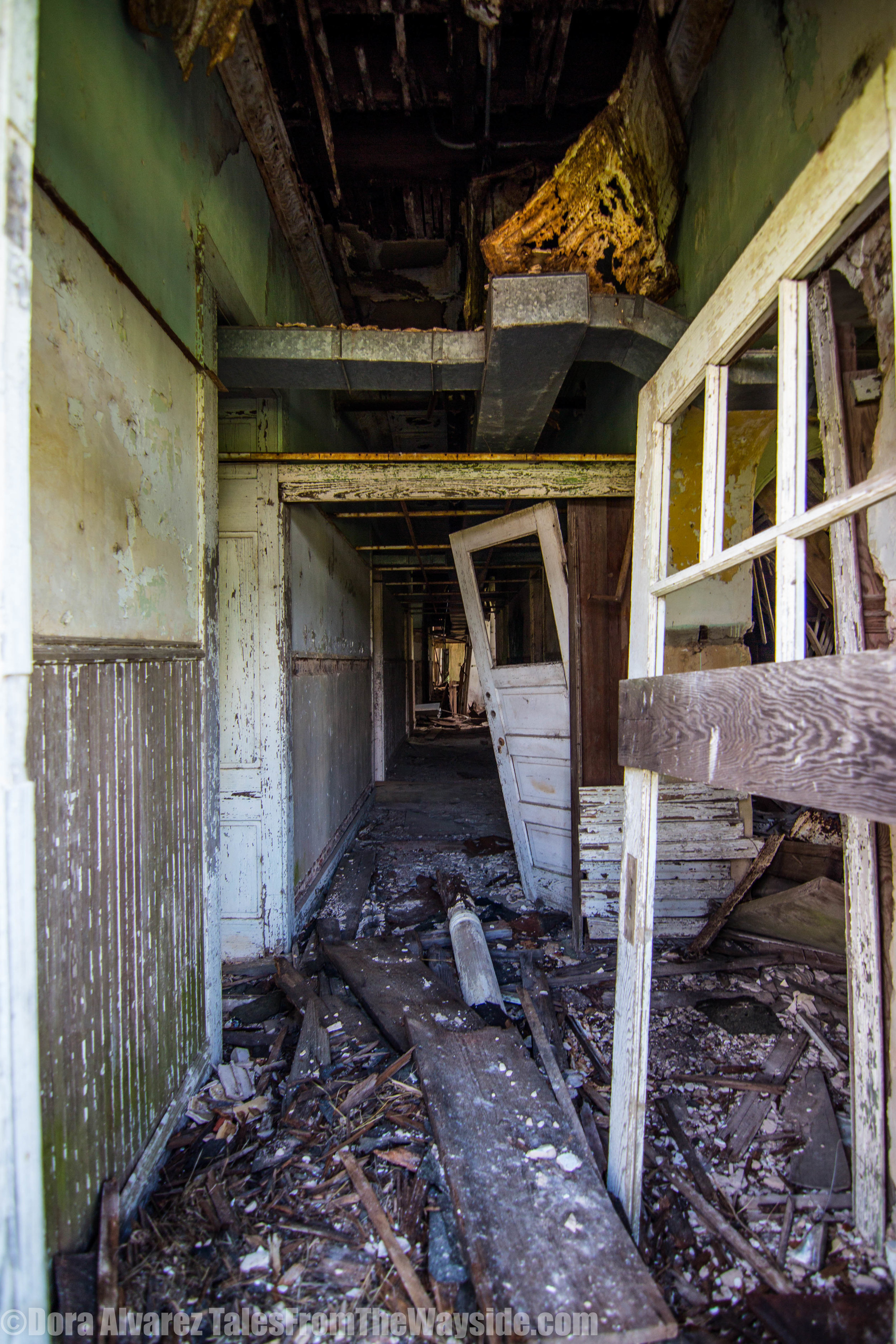Texas' first black woman's college, hosting an all black faculty and black administrator in 1933. Initially built as a parochial school in 1886 by Presbyterian Rev. Richard Allen and his wife Mary E. Allen. Mary Allen passed away in 1887 and the school was named after her.
Arriving at the college. such a massive structure
The old sign is still up, amazing
There's a lot of history at this location, but unfortunately it has been abandoned for so long that the local historical society is just hoping to stabilize the structure. The school is located so far out of the way of any major city and the lack of knowledge of such a building plays a major factor in the lack of funds. The head of the historical society said, it would take about a million dollars just to stabilize.
At first the school provided a liberal arts education, but later, due to criticism that it and other institutions like it around the country were not providing black women with necessary vocational training, the curriculum shifted to subjects such as cooking, dressmaking, and millinery. By the end of its first year, the school had 46 students, and in that year a brick building was erected to house students and faculty. As enrollment grew over the subsequent years, citizens from Crockett and elsewhere in the United States began donating land and money to the school, and by 1891 the campus consisted of 260 acres of land and an additional brick hall, named after the benefactor, Michigan United States Senator James McMillan.
Though the students were all black, the faculty of the seminary was initially composed of white women. In 1921, a Presbyterian newspaper advertised the position of "white lady teachers" at the school, promising 44 dollars per month for an eight-month term, plus "maintenance and railroad fare both ways."
I believe i found a photo showing this side of the building in it's heyday. below is the a class photo on these very steps. is this wood part of the old balcony?
a class of students and teacher at Mary Allen College
the dirt driveway leading to the school. the flagpole and fountain are still surviving in the front of the building.
In 1924, the Texas school board appointed the first black administrator, the Reverend Burt Randall Smith, to restructure Mary Allen Seminary. Over the next eight years, Smith oversaw an overhaul of the curriculum, including expansion of the library and science facilities, and in 1932 the school became an accredited junior college with an all-black faculty. In 1933, the school changed its name to Mary Allen Junior College and became a coeducational institution.
The school was closed in 1943 after a failed proposal to transform it into a black state college. In 1944, it was reopened by the National Missionary Baptist Convention of America and operated until 1972.
the only surviving building left.
if you would like to donate to help preserve this historical building please go here
very dangerous structure. all the classrooms just rotting away
sewing class at the Mary Allen College
classrooms giving away to decay
I learned from one of the historical society volunteers that it was tradition to have graduates sign their name onto the concrete sidewalk front of the building. the age of some of these signatures is amazing
Beautiful signatures
Teal school of photography class 1947. the few photos that were taken at the college were from a groundbreaking school in it's own right. The Teal school of Photography. Owned and operated by African Americans based in Houston.











